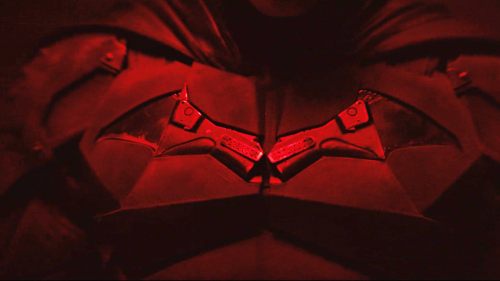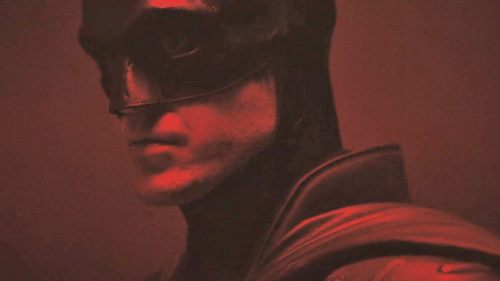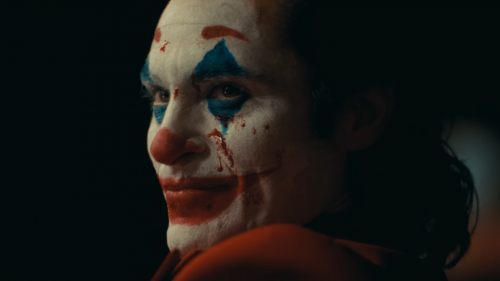Stop Dicking Around And Cast Tilda Swinton As The Joker
With every new iteration of Batman comes a new take on his arch-nemesis, the Joker. Though Bruce Wayne and his vigilante alter-ego never stray too far from the familiar – cowl and cape, Batmobile, the usual assortment of gadgets, an abundance of wealth – depictions of the Clown Prince of Crime have varied wildly in the eight decades since he first debuted in the pages of Batman. The Dark Knight's dress code remains indefinitely restricted to a limited selection of black-tie ensembles and rubbery tactical gear; the outcry to Joel Schumacher's introduction of Bat-nipples ensures that any iteration of the grizzled-and-chiseled hero must color inside the lines. The bad guys have all the fun. In the past 30 years alone, the Joker has been reimagined as a mobster horribly transformed by toxic chemicals (Jack Nicholson), a gleeful cartoon psychopath whose arsenal rivals Batman's own (voiced by Mark Hamill), a nihilistic anarchist whose origins and motives are scarily unknowable (Heath Ledger), a streetwise gangster fuck boy with face tats only a Juggalo could love (Jared Leto), and – in the latest incarnation – a failed comedian and introvert who lives with his mother, increasingly isolated by society (Joaquin Phoenix). Each of these iterations has defined and redefined the character; it's easy to forget that, in 1989, Nicholson's Joker was the darkest version to date. Time softens the edges.
This week, a Forbes report offered insight into the casting of The Batman, the upcoming reboot from director Matt Reeves. Starring Robert Pattinson as Bruce Wayne/Batman, the film is said to be the first in a trilogy (of course) and will feature multiple Batman villains – seemingly taking a page from The Long Halloween. Jonah Hill is reportedly in talks to play either the Riddler or Penguin, with the former being a much more likely bet given the actor's evident desire to distance himself from the fat kid in Superbad (to say nothing of an increasingly serious relation to his craft). Jeffrey Wright is in talks to play Commissioner Gordon – the first time Batman's longtime ally has been portrayed by a black man on film. With these casting subversions in mind, and knowing that a new cinematic iteration of the Joker is all but imminent, I feel compelled to put forth the next logical step in the Clown Prince's evolution: Tilda Swinton.
It is not merely a suggestion. I insist. There is no actor working today better fit to fill those iconic clown shoes than Swinton, a true chameleon whose work is, in itself, often a subversion of her craft. Her ability to transform and mutate eclipses that of peers like former Batman Christian Bale; she does not wear her characters and their attributes as accessories, like Bale or – I cringe, but it must be said – Johnny Depp. She inhabits the role. She becomes. She is. Perhaps her only equal is Daniel Day-Lewis, whose recent retirement leaves a gap Swinton is highly-equipped to fill. What Swinton delivers is more than performance or performance art, and it cannot be reduced to the simplistic label of "acting." There are few others capable of such chameleonic versatility. Swinton inhabiting a holy metaphorical trinity of personas in Suspiria, each representative of a different psychological concept steeped in psychoanalysis. Swinton in Trainwreck, in which the superficial costuming – long hair and a full face of makeup – of a magazine editrix felt oddly illicit and borderline taboo; a role that forced Swinton to conform to outmoded gender fashion norms resulted in what might be her boldest transformation to date. Swinton as an aging Bowie-esque rock star who moves like Buster Keaton in A Bigger Splash. Swinton as a porcelain-skinned bohemian vampire in Only Lovers Left Alive, or in The Dead Don't Die as a sword-wielding Scottish mortician with an affinity for making up the dead in a style that can only be described as Euphoria-meets-What Ever Happened to Baby Jane?
But for the purposes of the Joker, we must look no further than 2005's Constantine, which capitalized on Swinton's inherent androgyny by casting her as the archangel Gabriel – typically depicted and written as male. Director Francis Lawrence deploys Swinton with steely-yet-mischievous precision, handily subverting the viewer's expectations in the process. As Gabriel, Swinton is menacing and ethereal – not in the halo-wearing, angelic sense, necessarily, but in a manner that reads simply as evolved. She is nimble, cunning, and wildly misguided; delusional, even. The road to hell is paved with good intentions, and Gabriel is its signpost.
It's not the first time Swinton's name has been floated in relation to playing an iconic psychotic clown with a murderous sense of humor: Andy Muschietti revealed that he'd initially wanted Swinton to play Pennywise in his recent two-part adaptation of Stephen King's It. (To be fair, Swinton is brilliant and wildly talented, but I'm not sure she can do that thing with her eyeballs. Point: Skarsgard.) While Swinton would almost definitely make for an awesome Pennywise (she could play the fuck out of a Transformer robot, if need be), there's little that intrigues me about that particular notion. The Joker, on the other hand, is the perfect vessel for Swinton: Combine the unknowable, senseless horror of Ledger's Joker with the androgynous sociopath that is Gabriel, with a dash of The Killing Joke's nihilistic, deranged cruelty for good measure – oh, and the Hawaiian shirt. It's Margaritaville by way of a clown car through a Scottish moor, but make it fashion.
A genderless Joker would be sublime: It would not only offer casual representation for non-binary moviegoers, but it would scare the hell out of Middle America; the simple idea of referring to the Joker as "they" would summon a Lovecraftian tentacle of indefinable fear among the Basics. It would be well worth the headache caused by your dad's naive confusion and the ensuing conversation. The lack of gender identity could fit nicely with the concept of a Joker whose motives and origins are unknown – a villain who cannot be named, labeled, categorized, or defined. The boogeyman before his terrifying power was stripped away in numerous sequels exploring his childhood and origins and favorite snuggle toy and aversion to Kale (see also: every slasher franchise).
There will inevitably be readers who vehemently disagree, instinctively recoiling at the thought of a woman playing a fictional psycho-clown man embroiled in an ongoing battle for the soul of a made-up city with a wealthy white dude who is clearly also fictional because he actually has good intentions but dresses like a big rubber bat. To which I say: Read that last bit again. But also: So fucking what.
We're not talking about a woman. We're talking about Tilda Swinton, transcendent, amorphous beam of light with the power to assume the shape of whatever she damn well pleases. And that includes the Joker – a character whose every reimagining, no matter the shape or sound, elicits anger and resentment. People thought Jack Nicholson's version would be too dark and weird; his iteration became iconic. Fans were outraged at the notion of Heath Ledger, handsome heartthrob, stepping into Nicholson's shoes for Nolan. When the first photo of his Joker, with grungy greasepaint and a Chelsea smile, was revealed, people were pissed. But his version of the character was hailed as the best of all time; Ledger won a posthumous Oscar for the performance. We'll skip Jared Leto because his only fans are guys with Monster energy drink face tats who spend their lunch breaks at Office Max talking about "dope" rims for their Mazda. Joaquin Phoenix's iteration has yet to be judged by time.
So cast Tilda Swinton as the Joker in a future Matt Reeves Batman film. Let the fanboys throw a hissy fit. They'll get over it and move onto something else. This is the internet, after all. And when she inevitably knocks that performance out of the stratosphere – an icon redefining an icon – it will set a new standard, against which we will measure every subsequent portrayal and iteration.



